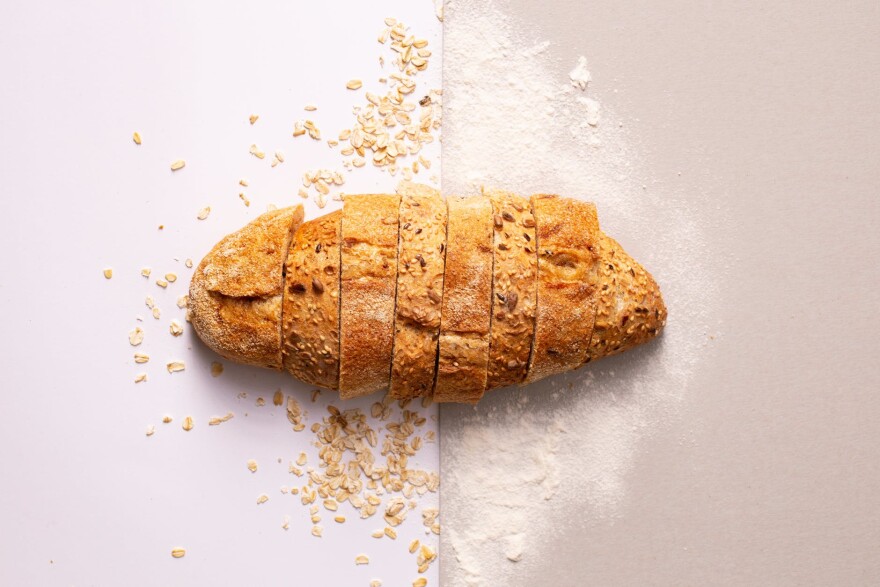If the thought of slicing into a just-baked loaf of bread makes your mouth water, here’s some great news for you: Bread is back and it’s better than ever.

And if you’ve been avoiding bread for health and lifestyle reasons, you can get ready to love it again, too. It’s time to end our decades of disdain for the stuff.
Bakers and trend-makers are hard at work to improve bread’s bloated reputation. They’re replacing pale and tasteless restaurant rolls with hearty or handmade versions. They’re upping the nutritional value and the eye appeal. Stores are baking and stocking expanded arrays of focaccia, flatbreads, roti and rye and more.
But what about those claims that bread is the root of obesity, allergies and worse? We reached out to Johnson and Wales University instructor and multiple-bread-book author Peter Reinhart. (He’s won James Beard and IACP awards so we trust him completely).
“Bread is not the enemy, or at least it doesn’t have to be,” he said.
At JWU’s International Symposium on Bread recently, presenters offered a workshop titled “Good Bread is Good For You.”
“We explored ways to flip the script on bread – from enemy to hero,” Reinhart said.
One key way to do that was by exploring how bread can contribute to positive gut health. That’s important, given how many people are avoiding bread due to gluten, a naturally occurring substance. Only about one in 100 people have true celiac disease, a condition where a reaction to gluten triggers a damaging immune response. Many others experience discomfort when they ingest bread or other foods containing wheat.
“Some of the increased sensitivities to wheat and other foods may be environmentally induced and not inherent in the grain itself,” Reinhart said.
So how can we bring bread back to the table wisely? First, Reinhart recommends seeking out breads made with organically grown grains. That aligns with the trends being noted nationally, according to bakingbusiness.com. People with dietary concerns have more options than ever as purveyors produce wheat-free, sugar-free, vegan and other varieties.
As consumers demand deeper flavors and textures, we’ll be seeing more breads made with fermented ingredients, such as sourdough and sprouted varieties. If you remember the unusual Ezekiel brand bread that appeared in grocery-store freezers back in the 1960s, you might be surprised to learn this multi-sprouted-grain product is suddenly trendy, more than 50 years later.
To hone your appreciation, don’t forget the simple joy of baking your own breads at home. There’s no limit to the pleasure and possibilities of crafting and sharing a food that has sustained mankind for thousands of years.
So shelve your memories of empty calories and gluey, plastic-wrapped slices. It’s time to embrace what’s old, what’s news, what’s trendy – and what’s timeless – about bread.
Amy Rogers writes WFAEats, a fun adventure where we explore all things tasty and tackle the meatier side of the food scene in and around Charlotte.



